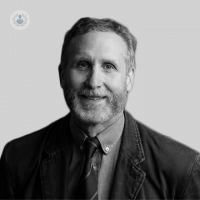What are the signs of a brain tumour in a child?
Written in association with:Although it is rare, around 400 children are diagnosed with a brain tumour in the UK each year. Early diagnosis can save lives, so knowing the most common signs and symptoms of brain tumours in children is important.
Mr Chris Chandler, a London-based neurosurgeon who specialises in treating such disease in children, gives us an overview of the symptoms, causes and the various treatment options.

What is a brain tumour?
A brain tumour is a swelling, or mass of abnormal cells within the brain that grows due to the body’s incapability of being able to manage cell growth and division adequately. A growth within such a restricted space as the skull can be very problematic. There are various forms of paediatric brain tumours. These can be either benign (non-cancerous) or malignant (cancerous).
What are the symptoms?
Symptoms of paediatric brain tumours can vary greatly and depend on the size, location, tumour type and the rate of growth. The most common symptoms of a brain tumour in children include:
- Sickness, particularly in the morning
- Headaches
- Feeling of pressure in the head
- Abnormal eye movements and visual disturbances
Other symptoms that a child may present include:
- Seizures
- Behavioural changes
- Abnormal eye movements
- Difficulty with balance
- Excessive thirst leading to increased urination
- Slurred speech
- Trouble walking
- Confusion and irritability
- Memory problems
From ages 0-4, the most likely symptoms are visual disturbances and the feeling of pressure in the head which leads to nausea and vomiting. However, beyond this age, the most highly reported symptom is a continuous headache.
Due to a child’s reduced ability to communicate these symptoms well, diagnosing a paediatric brain tumour can prove difficult and take some time. Unfortunately, this delay in diagnosis can affect the treatment options available and therefore the prognosis, making it important to identify warning signs early on.
How is a brain tumour diagnosed?
A neurosurgeon or a neurologist are the best specialists to diagnose a paediatric brain tumour. The most common methods of choice are an MRI scan or CT scan.
What are the treatment options?
- Surgery
A surgeon will try to take out as much of the tumour mass as possible. Surgery is also commonly used to remove small sections of the tumour for biopsy.
- Radiotherapy
Using high energy radiation, the goal of radiotherapy is to eradicate cancer cells. Radiation is popularly used if your doctor decides that the tumour cannot be operated on. It is not uncommon to use radiotherapy after surgery to remove any remaining tumour cells. Unfortunately, during radiotherapy healthy cells are damaged so there are some unpleasant side-effects, such as tiredness, hair loss and nausea being the most common.
- Chemotherapy
This form of treatment is mainly used for fast-growing brain tumours by using drugs to fight against the cancer cells. There are numerous types of drugs depending on the type and stage of the tumour, and they can be used in different combinations. It’s possible to use chemotherapy alongside other treatments, such as surgery and radiotherapy. Like radiotherapy, there are some unpleasant side-effects.
Recovery
Complete recovery of health after suffering a brain tumour is possible. A variety of therapy options can also help in your child’s recovery, such as physiotherapy, occupational therapy and speech therapy.
A brain tumour for both children and their loved ones is a traumatic experience. However, thanks to the advances in modern medicine, technology and science, more children than ever are making a full recovery.
Mr Chris Chandler is a London-based neurosurgeon with a reputation for being at the forefront of many techniques. You can make an appointment with him by visiting his Top Doctors profile.


